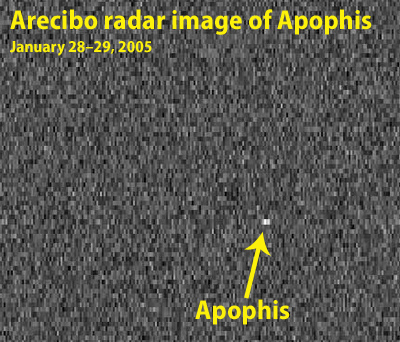 People love to jump on NASA when things aren’t going so hot for the space agency. Do you remember the reaction of some when the Hubble Space Telescope had its early hiccups? This is the same crowd that ignores NASA’s amazing successes, such as the twin rovers on Mars, Stardust catching a comet, Cassini revealing the saturnian system, and years of amazing images from Hubble.
People love to jump on NASA when things aren’t going so hot for the space agency. Do you remember the reaction of some when the Hubble Space Telescope had its early hiccups? This is the same crowd that ignores NASA’s amazing successes, such as the twin rovers on Mars, Stardust catching a comet, Cassini revealing the saturnian system, and years of amazing images from Hubble.
Recently, the media picked up a story about a 13-year-old German student who identified a miscalculation in NASA’s estimates on the asteroid Apophis and its potential collision with Earth. The student’s research was part of his science fair project. (What? No vinegar-and-baking-soda volcano?)
The hate-NASA crowd had its latest “Gotcha!” Brainiacs were bested by a teen.
Well, as it happens, NASA won’t have to get out the erasers just yet. The agency released this statement concerning the student’s calculations:
The Near-Earth Object Program Office at NASA's Jet Propulsion Laboratory in Pasadena, California, has not changed its current estimates for the very low probability (1 in 45,000) of an Earth impact by the asteroid Apophis in 2036.
Contrary to recent press reports, NASA offices involved in near-Earth object research were not contacted and have had no correspondence with a young German student, who claims the Apophis impact probability is far higher than the current estimate.
This student's conclusion reportedly is based on the possibility of a collision with an artificial satellite during the asteroid’s close approach in April 2029. However, the asteroid will not pass near the main belt of geosynchronous satellites in 2029, and the chance of a collision with a satellite is exceedingly remote.
Therefore, consideration of this satellite collision scenario does not affect the current impact probability estimate for Apophis, which remains at 1 in 45,000.